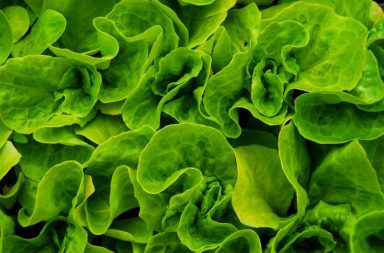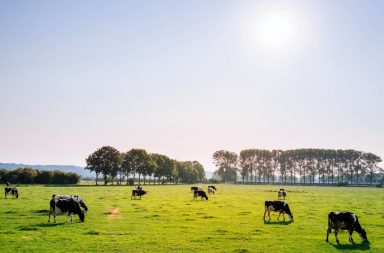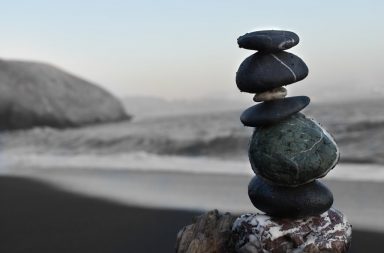Are vegans healthier than meat eaters? It’s a question that always provokes strong opinions from those that eat meat, and those that don’t. But what’s the answer?
Vegan diets are becoming increasingly popular, as people start to weigh up not only the health benefits of veganism, but also the impact of eating meat on the climate.
Vegan diets focus mainly on plant products, including fruit, vegetables, grains, and pulses. Naturally, this sounds healthier than a sausage and egg butty, right? But of course, it isn’t quite that simple. Many animal products contain proteins and vitamins that are important for our bodies. In fact, some meat eaters claim that veganism can lead to nutritional deficiencies.
So, are vegans healthier than meat eaters? Well, it’s a good question, but a complex one!
We’re going to take a look at vegan diets and answer the question: are vegans healthier than meat eaters?
What is a vegan diet?
A vegan diet eliminates all animal products. This includes meat, dairy, eggs, and anything else that derives from animals. It also includes products that contain any ingredients that come from animal products.
A vegan diet is not to be confused with a vegetarian diet. Vegetarians don’t eat meat, but will eat other animal products such as milk, cheese and eggs.
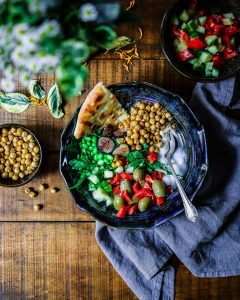
Photo credit:
Edgar Castrejon via Unsplash
Of course, when you think about cutting out all animal products from your diet, it might sound like there is little left to eat. In actual fact, there are many things you can eat as a vegan to ensure you have a healthy, balanced diet!
So, why do people choose a vegan diet?
Well, for many, a vegan diet means not participating in animal cruelty. The food industry has been under fire in recent years for excess factory farming and cruel practices. But that’s not all.
Climate change has also had an influence on those choosing to eat a vegan diet. Documentaries such as Cowspiracy have highlighted the impact that the meat industry is having on the climate. Choosing a vegan diet means a smaller carbon footprint, and for those wanting to make a difference environmentally, veganism is a huge step in the right direction.
But what about health reasons? One concern that people have about veganism is the lack of nutrients found in vegan-friendly foods.
Where do vegans get their protein from? And is there a risk of nutritional deficiencies that meat-eaters don’t have to worry about?
Well, before we look at whether vegans are healthier than meat eaters, let’s look closer at the vegan diet.
Healthier diet: vegan or meat eater?
We know that meat eaters – or omnivores – get the majority of their protein from animal products. Foods such as chicken, meat, milk, and eggs all contain high amounts of protein.
In fact, meat eaters get a lot of their other vitamins and minerals from animal products too, including B12. Vitamin B12 is an important part of our nutritional intake, crucial to the functioning of the nervous system, and might only be found in high numbers in animal products.
So, what about vegan diets? Where do they get their vitamins and protein from?
Well, vegans can easily get their nutrients from plant-based products. The only difference is, where meat eaters generally don’t need to think about the level of nutrients contained in their foods, vegans do need to give it more thought.
Let’s take a look at what’s included in a vegan diet:
- Vegetables – of course, a vegan diet includes all vegetables. Leafy greens such as spinach, kale and broccoli are high in important nutrients required in a vegan diet. Vegetables contain a huge number of vitamins and minerals that are key to a healthy and balanced diet for both vegans and meat-eaters.
- Fruit – again, an important source of nutrients for both vegans and meat eaters. Fruit contains natural sugars and carbohydrates that are key to keeping our bodies healthy.
- Nuts and seeds – many of the nutrients that are found in meat can also be found in nuts and seeds. This includes almonds, chia seeds, brazil nuts, sesame seeds and flaxseed. Nut butters are a particularly good source of protein and can be great if you are watching your weight too!
Look at the healthiest nut butters for weight loss!
- Pulses and grains – foods such as lentils, chickpeas, oats, and beans are a big part of the vegan diet. These foods are extremely high in nutritional value and are popular ingredients in vegan dishes.
- Tofu and alternative meats – tofu has always been a popular source of protein not only in vegan diets, but for meat-eaters too. And of course, not forgetting the huge range of “alternative meat” products that are now available in many fast-food restaurants and supermarkets.
So far, so healthy, right? Well, yes.
Whilst meat eaters can get much of their healthy nutrients from animal products, they are also consuming a diet that tends to be higher in saturated fats and calories.
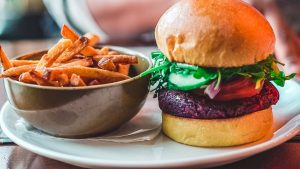
Photo credit:
Rolande PG via Unsplash
Vegan diets, however, are generally lower calorie foods – they’re high in fiber and keep you fuller for longer. In actual fact, vegan diets are usually higher in fiber, vitamins, antioxidants and protein, than omnivorous diets.
That being said, many vegans need to take food supplements for vitamins such as B12, as these are difficult to get in higher amounts in plant-based foods alone.
So, if vegan diets tend to be lower in saturates, calories and fats, does that mean vegans are healthier than meat eaters?
Let’s find out!
Are vegans healthier than meat eaters?
As you can see, both vegan diets and omnivore diets contain nutrients that are crucial for the human body to function in a healthy way.
It is true, however, that on average, people who eat a vegan diet do tend to eat higher amounts of healthy foods. This is more than likely due to the fact their diet is based mainly on nutrition rich produce such as vegetables, grains and legumes. Not only that, but vegans are also required to be more aware of the nutritional values of their meals to prevent deficiencies in their nutrition levels.
That isn’t to say that all vegans are healthier than meat eaters though. In fact, with the rise in vegan junk food production, it is now easier than ever to eat an unhealthy vegan diet.
There are currently more vegan confectionery products, alternative meats, and vegan options found in fast-food restaurants than ever before. All of which are as equally processed, and higher in sodium than their meat counterparts!
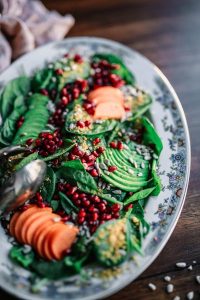
Photo credit: Edgar Castrejon via Unsplash
It’s important to note, however, that there are also high numbers of meat eaters out there that consume plenty of fruit, vegetables, proteins, and vitamins in their diet. Of course, eating meat doesn’t automatically make you unhealthy!
So, the takeaway from this? With any diet, it is crucial to make healthy choices, and eat plenty of healthy, nutrition-rich foods.
These foods include:
- Fruits
- Vegetables
- Nuts
- Beans
- Legumes
- Grains
- Low amounts of processed foods
Neither vegans nor meat eaters are healthier than the other, so long as the individual in question eats a healthy balanced diet.
Does a vegan diet require more thought? Probably, and this is likely to make you more conscious of your food choices and health values. However, it’s fair to say that the majority of us, no matter our diet, would do well to think more about the foods we consume and their nutritional value!
Remember, nutritious healthy food doesn’t have to be boring! We love acai berry bowls which are sweet and healthy – amazing!
